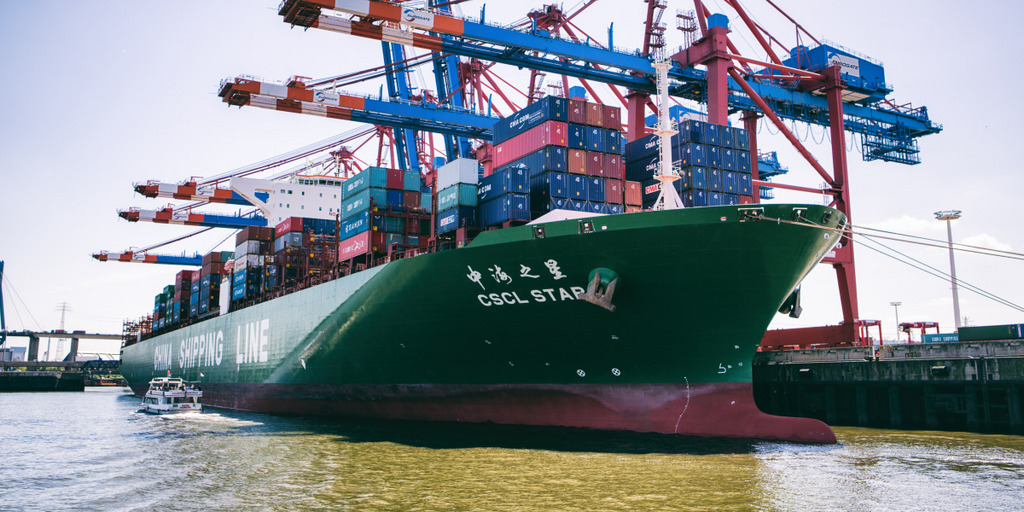anika.sina.laudien@bertelsmann-stiftung.de
+49(5241)81-81246

_dChris / flickr - CC BY 2.0, https://creativecommons.org/licenses/by/2.0/
Europe needs China – and vice versa
Beginning December 11, China expects the EU to treat it like a country with market economy status – as laid out in the agreement Beijing signed when it joined the WTO in 2001. This is giving rise to concerns that European companies might no longer be sufficiently protected from inexpensive Chinese exports. The current situation is more than just a maneuvering for economic advantage. It is also a game of power politics.
China joined the World Trade Organization (WTO) on December 11, 2001. Today the country is the world's second largest economy and an increasingly important political player. Despite its impressive economic rise, China has not transformed itself into a market economy – at least not according to western standards. Market planning and state intervention are part of the country's system. That is why the EU has not granted China market economy status until now. EU member states have more leeway to impose anti-dumping tariffs on goods exported by Chinese firms than on those exported by other nations. The 15-year transition period ends on December 11. After that, Chinese exports to the European Union must be treated like exports from a country with market economy status.
Policy makers and business leaders have repeatedly expressed concern that European companies will no longer be sufficiently protected from inexpensive Chinese exports – a concern that is not unfounded. At the same time, the current situation is more than just a maneuvering for economic advantage. The EU finds itself in the dilemma of having to meet the obligations it faces within the WTO, on the one hand, but also having to continue shielding its companies from unfair competition, on the other.
In the course of the debate, the European Commission proposed changes to the anti-dumping rules in November. According to the proposed changes, a distinction will no longer be made between countries with and without market economy status, but a procedure introduced instead that will determine anti-dumping tariffs irrespective of country. According to the Commission, this would offer adequate protection from dumped imports.
One controversial point, however, is how compatible the new rules would be with WTO regulations, including the principle of non-discrimination. Beijing has already said it is unwilling to compromise and will no longer accept being treated differently than any other country during anti-dumping procedures after December 11. The Chinese are thus expecting from their trading partners that the latter adhere to the agreement made when China joined the WTO.
China's argument is making it hard for Brussels to deal with the challenges still inherent to the country’s political and economic system. And while the Asian nation has indeed become considerably more open since its WTO accession, especially in the area of trade, formal and informal barriers still exist 15 years later that prevent foreign investors from entering the market. In some sectors such as the automotive industry, companies are forced to cooperate with Chinese partners. In others such as the financial services industry, foreign investors can only become minority shareholders or are not allowed to invest at all. There is inadequate protection of intellectual property, something that can provide Chinese companies with an unfair competitive advantage, for example when a foreign firm cooperating with a Chinese partner must disclose patents. The massive overcapacities – in steel, ceramics and aluminum, for example – are being reduced too slowly. In the future, Chinese companies could continue to attempt to dump these products in Europe at submarket prices. That means trade disputes are, most likely, just a matter of time.
These challenges show that the reform programs China has initiated under President Xi Jinping are not always proceeding in a direction Europeans would like and are in many cases not being implemented consistently. European companies thus rightly complain about the lack of a level playing field and equal partnerships. China maintains that as the world's largest developing economy, it needs time to restructure its economic system so it can increase domestic consumption, technological intensity and sustainability. European firms could benefit from this process if China were finally to allow them to compete as equals with Chinese enterprises – including in sectors in which this has not been the case until now. Unfortunately, the signs seem to point in a different direction, since European companies active in China say that the framework conditions for foreign investors have recently deteriorated.
Conversely, the EU offers unimpeded access to its markets and fair framework conditions to Chinese investors, who gladly make use of them. Chinese companies are strategically investing in Europe's high-tech industries, which increasingly leads to the question of how Europe's position in global value chains will be affected if European companies do not have the same access to China’s high-tech sectors. Given the size of the Chinese economy, the implications these developments have for the EU should not be underestimated. Even beyond the issue of which anti-dumping measures will be applied in the future, how it deals with China will be a key factor determining Europe’s long-term economic success.
The political debate about China's status as a market economy has revealed the policy tasks Europe is going to face as the People's Republic becomes a more significant and powerful partner for Germany and the EU. The Asian nation wants to be recognized internationally as a global player. As far as Europe is concerned, China must assume the responsibilities such a role brings with it in addition to claiming its rights. And even if Europe's room for maneuver is now limited, a mutual economic dependence exists. Yet before the balance of power shifts in China’s favor, after which there will be even less room for maneuver, the EU should agree on a cohesive China strategy and avoid any tactically ill-advised and unstructured debates that unnecessarily burden the relationship with Beijing. Given the multiplicity of interests present in the EU, that is no small task. All participants would benefit, however, if they were to come to agreement on core issues so that the EU could act credibly and confidently vis-à-vis China and demand a level playing field over the long term.
The outcome of the US election could create a window of opportunity here. Since Donald Trump's victory has caused considerable uncertainty, the EU could take the chance to become even more of a key partner for China and shape relations to the benefit of both sides. This would also add weight to Brussels' calls for fair treatment and equal partnerships.
A comment by Cora Jungbluth and Anika Laudien




